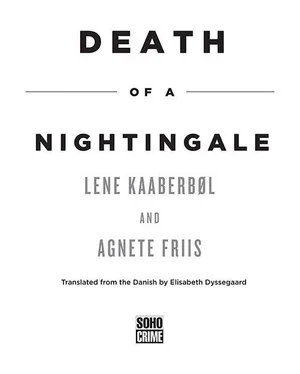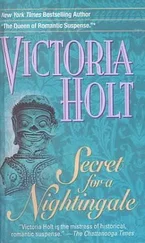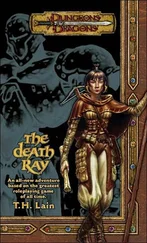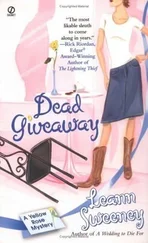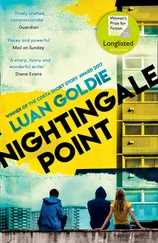Lene Kaaberbol - Death of a Nightingale
Здесь есть возможность читать онлайн «Lene Kaaberbol - Death of a Nightingale» весь текст электронной книги совершенно бесплатно (целиком полную версию без сокращений). В некоторых случаях можно слушать аудио, скачать через торрент в формате fb2 и присутствует краткое содержание. Год выпуска: 2013, ISBN: 2013, Издательство: Soho Crime, Жанр: Старинная литература, на английском языке. Описание произведения, (предисловие) а так же отзывы посетителей доступны на портале библиотеки ЛибКат.
- Название:Death of a Nightingale
- Автор:
- Издательство:Soho Crime
- Жанр:
- Год:2013
- ISBN:1616953047
- Рейтинг книги:5 / 5. Голосов: 1
-
Избранное:Добавить в избранное
- Отзывы:
-
Ваша оценка:
- 100
- 1
- 2
- 3
- 4
- 5
Death of a Nightingale: краткое содержание, описание и аннотация
Предлагаем к чтению аннотацию, описание, краткое содержание или предисловие (зависит от того, что написал сам автор книги «Death of a Nightingale»). Если вы не нашли необходимую информацию о книге — напишите в комментариях, мы постараемся отыскать её.
Death of a Nightingale — читать онлайн бесплатно полную книгу (весь текст) целиком
Ниже представлен текст книги, разбитый по страницам. Система сохранения места последней прочитанной страницы, позволяет с удобством читать онлайн бесплатно книгу «Death of a Nightingale», без необходимости каждый раз заново искать на чём Вы остановились. Поставьте закладку, и сможете в любой момент перейти на страницу, на которой закончили чтение.
Интервал:
Закладка:
“You’ve always been full of lies, Grachev!” a man behind Olga shouted spitefully, and several others availed themselves of the opportunity to spit angrily on the floor. Olga recognized the first one as Uncle Grachev’s neighbor and card-playing friend. Olga had often seen them sitting together by the samovar, smoking and drinking tea and vodka. The neighbor also used to borrow her uncle’s cart when he had to bring in the hay or needed to go to Sorokivka.
The truth.
Grandmother and Grandfather Trofimenko were dragged in and placed together before the judge. Grandfather had trouble staying upright and had to lean on the GPU officer who had led them in. Grandmother, who was tiny, smaller than Olga and stooped, stood without help but couldn’t seem to understand what the judge was asking her. She just cried.
Kulaks, like their sons. People spat again, and Olga stole a look over at Comrade Semienova, who stood against the wall almost next to the judge’s desk. She looked at once strict and sorrowful, exactly as she did in school when someone answered an important question incorrectly or maybe even said something stupid about Uncle Stalin. When that happened, she frowned exactly as she was doing now and tilted her head as if she was trying to figure out how she could best show them all the beautiful pictures of the future that were in her head. She had never looked at Oxana in that way, but sometimes at Jana and Olga when they giggled in class, and it was such a sad expression that Olga always wanted to apologize because she had upset Semienova.
Today she wanted to show Semienova that she had understood everything. That she knew what was needed to fix everything that was wrong in the world. Both Grandmother and Grandfather Trofimenko were beyond redemption, that much she could see already, but she could still make Semienova proud.
“Uncle Grachev is a kulak,” said Olga. Her eyes met Semienova’s, and Semienova smiled encouragingly at her. “The day Oxana and Kolja were murdered, my cousin Fyodor and he came to look for Oxana. She was to die because she was a communist.”
“And what did you do?”
Olga sat so close to the judge that she could smell the strange, spicy scent of his grey coat, but she didn’t dare look up at him. He seemed so stern, and he had large, springy grey hairs that sprouted like brushes from his ears and even from his nostrils.
“I cried,” said Olga. “I begged for her life, but they wouldn’t listen to me. They wanted to kill the people’s nightingale, they said.”
Someone patted her on the shoulder when she sat down on the bench next to Mother. She pulled herself together to smile faintly, but she couldn’t really feel anything anymore. She didn’t know if she was a hero or a sinner, and she caught herself envying Oxana her fate.
Oxana was a hero. Of that there was no doubt.
The newspaper had written about her, and Semienova asked the party leadership in Moscow for money to erect a statue of Oxana in pioneer uniform in the square in Sorokivka. The people’s nightingale.
Olga clenched her teeth and stared down at her hands, which lay like dead birds in her lap.
The truth had left a sharp, metallic taste on her tongue. Nothing else.
The bus stop sign cleared the snowdrift by only about a meter and a half, and the wind still whipped more snow across the open fields. They had called and shouted all the way down here, without result. Nina searched her pocket for her cell phone but then remembered that she had given it to Søren. Her left arm ached steadily, a deep but not especially insistent note of pain, like a soft bass line somewhere beneath the main theme: the fear of what had happened to Rina.
“Do you have a cell phone I can borrow?” she asked. “This isn’t going to work; we need dogs.”
Anna shook her head. Here was a woman who understood how to dress for the weather, thought Nina. A bright red ski suit covered her from head to toe and made her look like an overgrown kindergarten child on an excursion.
“I have one somewhere, but I rarely use it. I don’t even think it’s charged. We’d better go back to the house. Then you can call from there.”
Why aren’t they already here? thought Nina. Chains of men with Alsatians, lights, search teams? Sending one policeman to look around couldn’t exactly be called a search.
And she felt almost certain that this was the place they needed to search for Rina. There were probably just two places in Denmark that could have activated Rina’s homing pigeon instinct. One was the Coal-House Camp, the other was here. And it wasn’t the Coal-House Camp that Rina had tried to call.
They turned around and walked back toward the house. Anna moved at a steady clip, and in spite of legs that were somewhat longer and younger, Nina had to quicken her pace to keep up. At first it was nice to have the wind hit her other cheek for a change, but it wasn’t long before that cheek was just as numb as the one that had been frozen on the way out. When they were almost all the way back to the farm, a large, brindled dog came running toward them.
“There you are!” said Anna sharply.
The dog didn’t pay any attention to the cool greeting. It jumped around, shaking its head so its ears flopped, and wagging its entire rear. When Anna didn’t pay it much attention, it thrust its pinkish-brown nose into Nina’s hand, so that her glove was soon covered by a fine glaze of dog drool.
That was when she discovered that it had something in its mouth. At first she thought it was a mouse, and in a way it was—a stuffed toy mouse with oversized ears, eyes and feet.
It was the Diddl mouse that had been attached to the zipper on Rina’s backpack.
“MY HUSBAND TRAINEDher,” said Anna. “She never really bothered to listen to me.”
“We have to try,” Nina insisted. “What is her name?”
“Maxi.”
Maxi had exchanged the Diddl mouse for a dog biscuit, but Anna still didn’t show any sign of encouraging the dog to search, and Nina’s experience with that kind of thing was limited to having seen cadaver dogs work. She attached the leash to its collar and then held the drool-covered toy mouse in front of the dog’s nose.
“Search,” she said as authoritatively as she could. “Maxi, search!”
The dog looked up at her, and she thought it looked as if it was grinning foolishly.
Something occurred to her then. “We should be able to see where it came from. It must have found the toy somewhere.”
“The snow is already covering the tracks,” said Anna.
“Yes, we have to hurry.” She remembered that she was, in fact, dealing with an elderly woman. “You don’t need to come,” she said. “If I can just borrow Maxi.”
“You don’t know your way around here,” said Anna. “We can’t have you getting lost too.”
THEY HAD WALKEDperhaps four to five hundred meters in the deep snow—about as exhausting as wading in seawater at mid-thigh height—when Maxi finally seemed to understand what the exercise was all about and set off with a tug that almost dislocated Nina’s one functioning arm.
“She’s got a scent!”
“Yes,” said Anna. “Let her get on with it. Hold the leash tightly, but go with her as quickly as you can. Run if you can.”
The flashlight’s cone of light danced across the snow. Shrubbery and saplings were bent low under the heavy snow, and once in a while Nina’s foot caught on a branch or a stone she couldn’t see. A fence blocked the way on the left—that must be the edge of the golf course. This was neither woodlands nor a real field, but a scruffy sort of in-between-ness, like the meager plantings the municipality tried to establish on highway embankments and the like. Nina had to halt the dog for a moment while she climbed over a partially fallen barbed-wire fence, then on they went through the drifts. Her jeans were ridiculously unsuitable for this, and the snow worked its way up her pant legs and melted down into her socks and boots.
Читать дальшеИнтервал:
Закладка:
Похожие книги на «Death of a Nightingale»
Представляем Вашему вниманию похожие книги на «Death of a Nightingale» списком для выбора. Мы отобрали схожую по названию и смыслу литературу в надежде предоставить читателям больше вариантов отыскать новые, интересные, ещё непрочитанные произведения.
Обсуждение, отзывы о книге «Death of a Nightingale» и просто собственные мнения читателей. Оставьте ваши комментарии, напишите, что Вы думаете о произведении, его смысле или главных героях. Укажите что конкретно понравилось, а что нет, и почему Вы так считаете.
